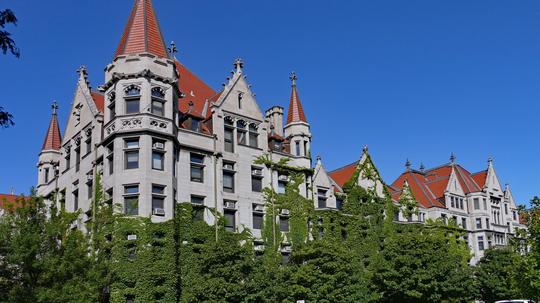
To help its student entrepreneurs launch, develop and scale their businesses, the University of Chicago hosts its annual New Venture Challenge, where student startups compete for cash prizes.
This year for the first time in the competition’s 23-year-history, 12 teams will compete in the finals on June 6. Normally only 10 compete, but UChicago made an exception. It also made an exception last year, when it allowed 11 to compete.
Finalists this year are competing for more than $1 million in prizes, $400,000 of which is cash, said Steve Kaplan, a professor of entrepreneurship and finance, and the faculty director of the Polsky Center for Entrepreneurship and Innovation. This year, the winning team will receive a minimum of $150,000.
“The finals every year get better,” Kaplan said. “What we look for is real businesses that have the potential to be successful companies.”
The NVC is ranked as one of the top accelerator programs in the U.S. and its winners have included top Chicago companies like SimpleMills, Grubhub and Braintree. Other notable Chicago startups that have participated in the NVC include InContext Solutions and Tovala.
“Students increasingly come to school here to build their businesses,” Kaplan said. “It’s a place where you can get a lot of support, advice and access to a network. And all those things are very helpful in building your business.”
The first NVC took place in 1997 and the prize pool was only $25,000, Kaplan said.
“It was an experiment,” he said. “We didn’t know what we were doing. But over the years, it has evolved to where it is now—a finely tuned machine.”
The prize money is sourced from donations to UChicago, the college’s Innovation Fund and the competition’s judges, such as VCs from OCA Ventures and Origin Ventures.
Last year, some investors decided to add to the prize pool after seeing the startups pitch, something Kaplan said he hopes to see again this year. Finalists last year ended up receiving nearly $700,000 in cash and investments, $315,000 of which was given to the first-place winner, Manifest, the maker of a software that standardizes 401(k) transfers.
Kaplan said the finalists competing this year hail from a diverse set of industries, ranging from real estate and healthcare to food and gaming.
“It is unbelievably diverse, and there’s a combination of serious technology and interesting business models,” Kaplan said. “It’s very exciting to us because we think that there are a number of teams that could be very, very successful.”
Below are the 12 companies competing in UChicago’s New Venture Challenge.
Aegis.AI provides AI software that automatically identifies guns and public safety threats in security camera feeds to notify security and law enforcement. The system detects guns, intruders and abandoned objects in real-time, turning any security camera system into a threat-detecting smart camera system without requiring additional hardware.
Africana Airlines is an airline that provides affordable and reliable transportation in Africa.
Airspace is an end-to-end platform that outsources office management. Airspace upgrades the private office experience by setting up and managing offices with all the services, amenities and technology it needs.
Apollo Foods is a snack company creating healthy snacks using local superfoods. The company is starting in Mexico with rice cakes fortified with cricket powder.
Beltech is developing patent-pending advanced materials that allow battery manufacturers to use their current manufacturing processes to mass-produce safer lithium-ion batteries. The startup’s tech will allow batteries to last more than two times longer between charges, and reduce the overall battery cost for consumer electronics and electric vehicles.
Digital Adventures teaches kids through a tech-powered, project-based approach, to develop 21st century computer coding and engineering skills.
Five to Nine is a platform for organizing internal programming, analyzing employee participation, and measuring overall employee engagement, allowing companies to evaluate their spending and the needs of their employees in real-time.
GGLeagues is an eSports league that promotes community among gamers through structured competitive recreational leagues and live in-person gaming events.
Iris Light Technologies is a nanomaterial company creating manufacturing solutions for the light chip market.
Kambista is a digital platform that exchanges Peruvian Sol and the US Dollar at fair prices for individuals, and small and medium enterprises, reducing the informal exchange market in Peru and Latin America without additional fees.
My Art Cache is a private online matching platform for art industry professionals, dealers and buyers to enable fine art dealers to capture lost sales and liquidate “hidden” inventory.
Veda Grace uses an imaging technology for your phone that can see inside your skin layer-by-layer. Veda Grace’s virtual cosmetic dermatologists can formulate a personalized, once-a-day prescription product.








